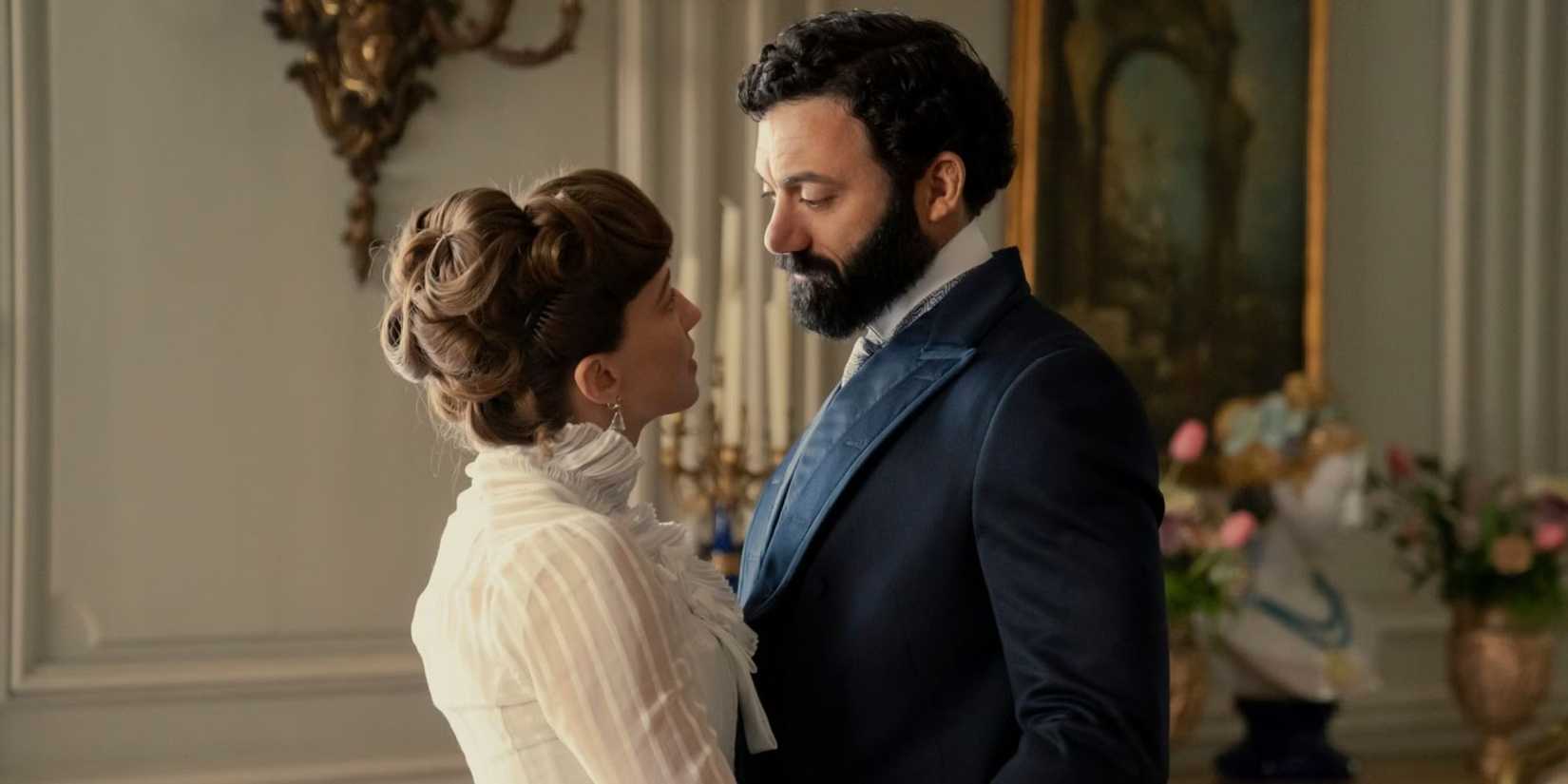Losing George (Morgan Spector) and Bertha Russell’s (Carrie Coon) mutually adoring marriage, one wherein they championed one another’s ambitions, drastically upends one of The Gilded Age‘s touchstones. Coon, the dynamic performer responsible for bringing Bertha’s inner fire to life, hopes for a loving reconciliation in Season 4 as much as viewers do. Even if the worst result unfolds, however, Coon sees a light at the end of this heartbreaking tunnel — a juicy, daring, disruptive, and somewhat self-actualizing path forward for Bertha.
Carrie Coon Thinks Bertha Could Become a Suffragette in ‘The Gilded Age’ Season 4
During a Deadline interview following Season 3’s finale, Coon discussed Bertha’s current distress and what her future might involve, should George shift from privately shunning her to openly rejecting his wife:
“One of the things that happens as Bertha and Gladys get to come together at the end of the season is [Bertha]’s gonna have to reflect back on what she’s done, even though it’s successful, it’s not without complication. It wasn’t without cost. That sort of nascent feminist awakening would be a really interesting pursuit for her, whether or not the marriage lasts. […] I think she’s not quite far down the path of that exploration to understand exactly what happened. We catch her in the middle of trying to process that moment.”
Even more than Fellowes’ earlier historical hit, Downton Abbey, The Gilded Age doubles as a history lesson. It’s undeniable that prominent white families remain the main characters, but the series does uplift the perspectives of historically overlooked individuals and communities. Take the fictional Jack Trotter’s (Ben Ahlers) rise from a domestic servant to the area’s wealthiest man, or the friction within the Black elite, demonstrated by Peggy Scott (Denée Benton) and William Kirkland’s (Jordan Donica) families. Likewise, The Gilded Age routinely folds real-life figures and sociopolitical movements into its narrative backbone. To date, the series addresses the foundation of workers’ unions, the battle to protect Black public schools, woman inventor Emily Warren Roebling (Liz Wisan), and the wives whose reputations are forever tainted by scandal.
Once the Season 3 finale rolls around, Gladys and Bertha’s relationship has significantly healed since they butted heads over her arranged marriage. If Bertha’s semi-literal partner-in-crime and their son (Harry Richardson) both abandon her, however, that begs the question: who is Bertha Russell without her family? Untethered from her relationships with men, she must survive — and hopefully thrive — on her own accord. It’s what Bertha does best, yet with the possible exception of Gladys, she will be doing so entirely on her own this time. Self-rumination is also an excellent way to provide more insight into the acute ways Bertha’s past influences her present drive.
The Suffragette Movement Could Be the Perfect Path for Bertha in ‘The Gilded Age’ Season 4
It’s a foregone conclusion by now that Bertha, New York’s reigning queen bee, won’t hesitate to use her clout to power-play antiquated societal structures into submission — especially if she can reshape them into something beneficial for herself that, handily, also aids other women. In the same Deadline interview, Coon discussed the intricacies behind Bertha advocating on behalf of divorced women like Aurora Fane (Kelli O’Hara) and Charlotte Drayton (Hannah Shealy), whom society condemns while their ex-husbands parade around without suffering any consequences. Coon stated that although “nothing [Bertha] does is entirely altruistic […] I think she also manages to talk herself into a new value, a new crusade.”
Bertha’s methods this season are far from flawless. Nevertheless, George projecting his guilt onto Bertha and abandoning his Wife Guy devotion has shaken the essentially unflappable Mrs. Russell to the core. Bertha certainly won’t take her husband’s rejection lying down. If the spouses work through their issues and reunite as an even stronger, more unstoppable unit in Season 4, that would be an engaging story and put a refreshing spin on the dramatic break-up trope. Even as audiences cry into our Kleenex and curse George’s name, who better to embrace the feminist push than The Gilded Age‘s unashamedly ambitious, boundary-pushing leading lady?







